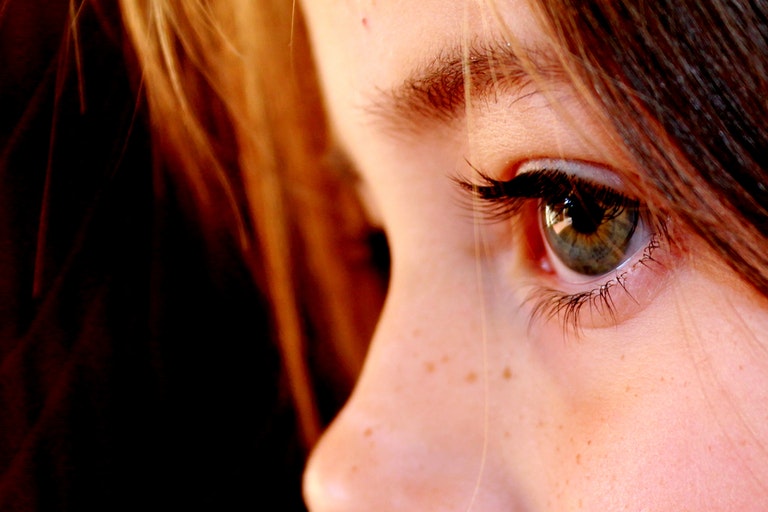Helping children through grief can feel daunting. But there are simple ways you can help. Your role as a parent or significant adult in a child’s life can offer them the stable footing they need to walk through their grief and develop resilience. We’ve put together a list of twelve easy ways to do just that. So that we can all learn from the collective wisdom of this community, please share ways you’ve been helping children through grief in the comments below!

12 Ways of Helping Children Through Grief
- Be concrete and simple with your language. You may be tempted to make heavy content feel less so. However, avoid euphemisms when speaking of loss, particularly death. Children think in literal terms and can become confused if your language isn’t clear.
- Maintain routine. It’s important for children to feel a sense of stability when an area of their life has shifted as a result of a loss. Whether in the home or classroom, consistent routine contributes to feelings of safety and soothes anxiety.
- Allow for all emotions to be expressed. All of us experience grief differently. A mixture of anger, sadness, numbness, fear, denial, confusion, and fatigue is normal. When helping children through grief, establish an environment where all emotions are welcome.
- Listen and respond with empathy. A child’s willingness to share their grief with you is a treasure. Listen carefully to them. Help them know you understand by reflecting back to them what they’re feeling. Additionally, if you feel what they feel, tell them so.
- Put felt emotions into words. Children can feel things for which they don’t have words. And their bodies will hold their unexpressed feelings. This can create struggle down the road in relationships, schoolwork, home life, and overall health. Help them by putting words to the emotions they experience but can’t express.
- Encourage story-sharing. Ask children if they’d like to share favorite memories. Sharing stories is particularly useful in the death of a loved one. Share stories of the person or pet they’ve lost and what their favorite qualities were.
- Offer ways of memorializing. Invite them to bring pictures and encourage them to create art, write and play in ways that are helpful. Coloring is a great way for children to process. So, hit up the ICM store for some great options. Furthermore, children need to see photos of their families after divorce and loved ones after they’ve died. You may even try mounting a board for photos and artwork to be displayed.
- Be patient. Children are repetitive and cyclical in their grief. They may ask the same questions over and over. They are looking for your confirmation that the story hasn’t changed. Additionally, these repeated conversations are excellent opportunities to help children utilize various ways of coping.
- Avoid giving a false sense of hope. Be honest with kids even when it’s hard to do so. It’s important for children to feel loss for them to move through it and develop strength and resilience. Also, if death is a part of their loss, share with them that because of the mystery of Heaven, we know death here on Earth isn’t the end.
- Answer questions clearly. We all encounter questions when moving through loss. This is often true for children, too. Respond to questions directly and simply. Additionally, if you aren’t able to give an answer, be honest.
- Give affection and security. At times, children don’t need to talk or do anything. But, they may still need you. If a child is in need of a hug or handhold, offer your presence to them. There are times when simply letting a child know you’re there is what they need most.
- Explain rituals. In the case of a death there may be rituals, e.g., a funeral, that will stir questions. Describe what children can expect when they experience these new situations and why they are significant.
Helping Children Through Grief Alongside Parents
Parents and guardians are the primary support helping children through grief. However, they can be unaware of how grief may be affecting their child. Significant adults in children’s lives can help children by supporting their parents. Below are signs of a child struggling deeply or getting stuck in processing the loss they have suffered. If this happens, staying connected with parents is imperative.
Alert parents, especially if a child…
- asks for repeated help with things they used to do for themselves routinely.
- cries a lot.
- shows a dramatic shift in behavior, e.g., becomes isolated, disinterested, aggressive.
- seems anxious, nervous, excessively worried.
- begins struggling with irrational fears.
- loses interest in play.
- shows sexual behavior inappropriate for their age.
- can’t concentrate.
- seems to show a drop in self-esteem and self-confidence.
Light for Children in a Dark Time
Walking with a child through a time of grief opens a unique opportunity. You are one of very few who have been granted a window into their hearts. It is a gift. Through your love and presence, you can offer light in what feels like darkness. If you’ve ever journeyed with another through a valley of grief, you know the deep bond that is often formed. Consequently, being brave enough to sit with children in their grief will expand your heart and strengthen theirs for the seasons ahead.
We’d love to hear from you, too! Share your insights and resources in the comments below.




Katie says
This is a great summary. It is on-point with what I learned about children’s grief while I was a hospice chaplain. I would add that a child sharing her/his grief is not only a gift, it is often a gift that isn’t often given space to be shared in churches. I read a study about adults who lost a loved one as children. The children were often ignored by adults helping the adults. Those who were invited to share their grief were more successful processing and releasing grief. Also, kids move between happily playing and feeling sad more quickly than adults do. It’s normal, which is one way being present to the child is important.